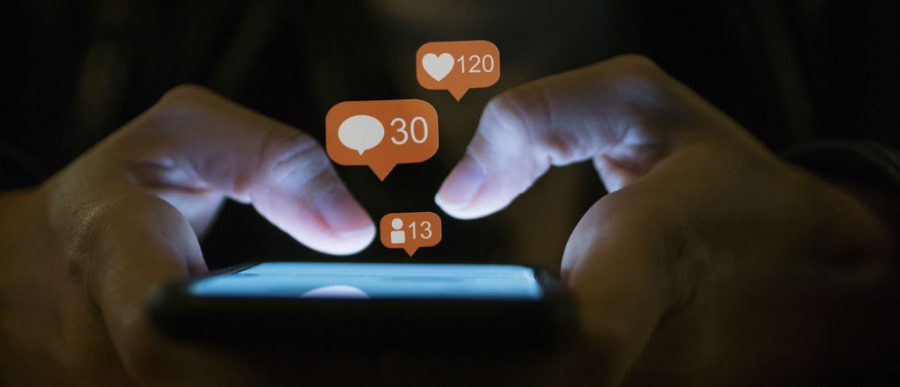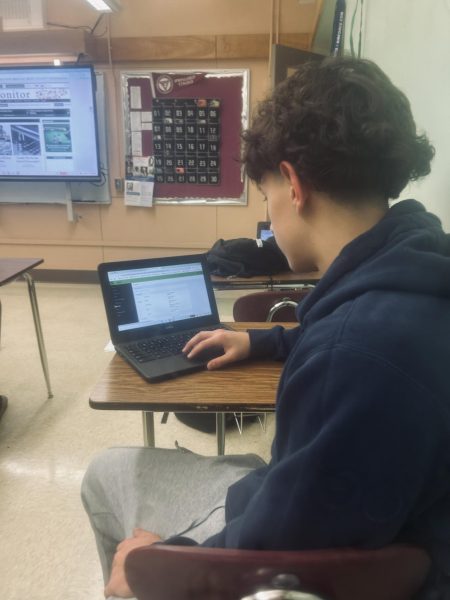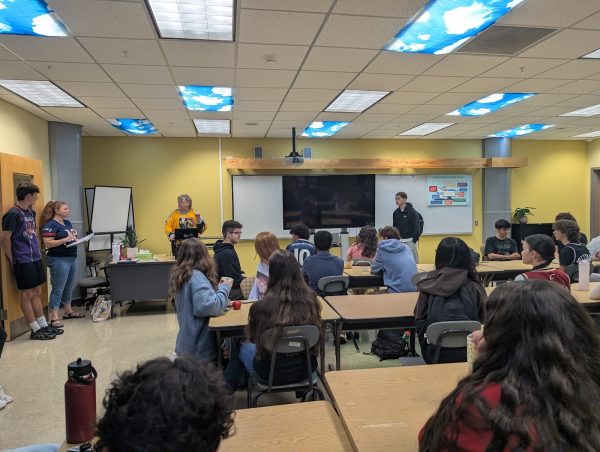Connected or Less Connected?
How social Media runs our lives
Nowadays, basically everyone has social media. With tons of different platforms to choose from, people of all ages have found their way to stay connected. From families sharing memories through Facebook, to trying your best for a Snapchat to that boy you like. But when does it start to overcome you?
The newer generations stay locked into their phones, their eyes glued down to their screen. When it starts to become a daily activity, do we really understand the way it’s affecting us?
That’s when our phones and social media become an addiction. You might not even realize how addicted you really are.
But I can’t blame you. According to BBC News Raskin, a former engineer in technology said, “‘Behind every screen on your phone, there are generally like literally a thousand engineers that have worked on this thing to try to make it maximally addicting.’”
But why would they want us to be addicted to our phones? It’s simple really, they need users, they need stock prices to increase, they need funding, so they need addicts.
Social media is always an unpredictable outcome. But that’s what we crave for, an outcome. We feed off the dopamine social media can give to us, influencing our brains with a feel good chemical. According to mcleanhospital.org, “they’re searching for validation on the internet that serves as a replacement for meaningful connection they might otherwise make in real life.”
However Oakmont student Avery Follansbee seems to think that, “social media has its flaws, but it really is a great resource for information and connections with others.” But is the resource really worth the negativity it brings?
So, when the likes and comments swarm in giving you that satisfaction of attention from people online, and your phone is blowing up with notifications you feel good. Honestly, we’ve all been there. But then your photos aren’t getting that many likes, you aren’t receiving notifications, you’re left dissatisfied. The sad thing is when social media lets you down, you’ll always come right back to it.
Caoileen Mullane, a senior at Oakmont, however has noticed the toll social media takes on her life and others. She often finds herself deleting different platforms to give herself a mental break from the media, “Social media has overall had a negative impact on my life but every time I find myself getting it back.”
As social media engulfs our free time and more specifically this new generation how has it affected us mentally? According to Kingsbury, a professor at Deakin University, “With 91% of young people using the internet for social networking rates of depression and anxiety in young people having risen by more than 70% in the past 25 years.”
With the way social media sets beauty standards for all genders, and is constantly enforcing what looks good and what doesn’t, it’s hard to be able to say social media isn’t impacting our mental health. And with the constant increase of platforms the quicker and faster ways to access these sites there may just be a correlation between the rising numbers of depressed and anxious teens.
An Oakmont junior, Billy Wirtanen, agrees that, “Social media does have an effect on mental health, it brings people down by setting such unrealistic standards.”
So we let it affect and overtake our mental health but what about our face to face relationships? We lack more real life attention since we’re so immune to talking to people through our phones. Senior Jake Langlois stated, “People find it easier to talk through social media and our phones when the connection and real conversations should be held in person. We get too comfortable with social media.”
Don’t fall for the media trap, take a break from your phone. Enjoy life through physical connections. Take a break for yourself and your mental health, your mind will thank you.













Dani Lewis • Mar 16, 2021 at 11:42 am
I’m so glad someone’s bringing attention to this! Great article 🙂
adviser • Mar 8, 2021 at 1:01 pm
Such a thoughtful article.